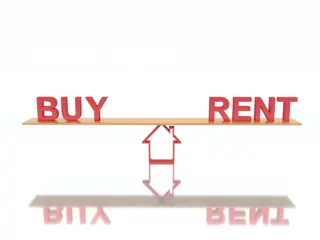Renting vs. Buying in Madurai: Choosing the Right Path
 Madurai, a city rich in cultural heritage, offers a unique real estate landscape. With rising property prices and changing lifestyles, deciding between renting and buying becomes crucial. This guide covers financial, lifestyle, and market factors to help you make an informed choice.
Madurai, a city rich in cultural heritage, offers a unique real estate landscape. With rising property prices and changing lifestyles, deciding between renting and buying becomes crucial. This guide covers financial, lifestyle, and market factors to help you make an informed choice.
Understanding Madurai’s Real Estate Market
Madurai’s real estate blends traditional and modern elements. Core areas like Anna Nagar show high urban demand, while outskirts offer affordability. Rental trends favor short-term leases (usually 11-12 months), as landlords cater to transient professionals.
Key Considerations for Madurai Residents
- Financial Stability: Buying involves upfront costs like stamp duty (5-7%) and registration fees, unlike renting’s security deposits.
- Lifestyle Priorities: IT hubs like SEZs favor renting for frequent relocations, while families prefer stability in owned homes.
- Market Trends: IT hubs and logistics area attract professionals and investors.
Renting: Flexibility with Hidden Costs
Pros of Renting in Madurai
- Lower Initial Investment: Security deposits (1-2 months’ rent) vs. 10-20% down payment for buying.
- Maintenance-Free Living: Landlords handle repairs, maintenance, perfect for temporary stays.
- Location Flexibility: Close to workplaces like Meenakshi Temple or IT parks in Sharadha Nagar.
- Avoids Market Risks: No exposure to price drops or interest rate changes.
Cons of Renting
- Rent Escalation: Annual increases often outpace fixed mortgage payments in popular areas.
- No Equity Building: Lifetime rent without ownership benefits.
- Lease Restrictions: Pet policies and renovation bans limit customization.
Buying: Long-Term Wealth or Financial Burden?
Pros of Purchasing Property
- Equity Accumulation: Monthly mortgage payments lead to asset ownership.
- Stability: Fixed-rate loans prevent rent hikes in high-demand zones.
- Customization Freedom: Renovate without landlord approval.
- Tax Incentives: Home loan interest deductions under Section 24.
Cons of Buying
- High Upfront Costs: Down payments exceed ₹5 lakhs even in peripheral areas.
- Maintenance Responsibilities: Repairs, property taxes, and insurance add recurring expenses.
- Market Volatility: Housing prices could decline if supply surges.
- Less Mobility: Selling homes takes months, unlike quick lease terminations.
Which Trend Aligns with Your Goals?
| Factor | Renting | Buying |
|---|---|---|
| Timeline | <3 Years | 5+ Years |
| Budget | Lower upfront costs | Require initial capital |
| Risk Tolerance | Prefer predictability | Willing to assume market risks |
| Family Needs | Transient lifestyles | Long-term stability for children |
For Budget-Conscious Buyers
Look into government schemes like PMAY or Tamil Nadu’s housing subsidies. Peripheral areas like K.K. Nagar offer lower entry points, though rents may rise slowly.
For Lifestyle Priorities
Inner-city renters gain access to temples and markets but face higher costs. Owning a villa in outskirts offers space but requires transport solutions.
Madurai-Specific FAQs
Q. What’s the average home price vs rent?
- 1BHK in city center: ₹45 L vs ₹12k/month rent
- 3BHK outskirts: ₹35 L vs ₹8k/month
Q. How do home loans work? Loan: Most banks offer 80% LTV with 7-8% interest rates
Q. What about rent control? Madurai lacks strict rent control; landlords typically review rents annually.
Final Thoughts
Madurai’s market shows no clear winner between renting and buying. Analyze your priorities: short-term flexibility vs. long-term equity. Tools like price-to-rent ratios (15+ favors renting) can guide decisions, but local trends must always match personal circumstances.